Relaxation Techniques for Sleep
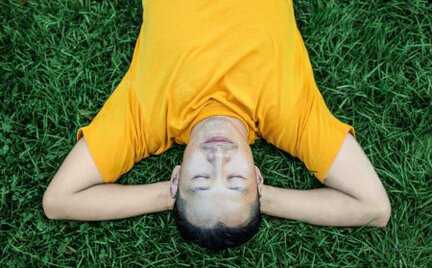
As you look for a fresh approach to reaching that restful reprieve you require, we invite you to explore the soothing world of sound therapy. AcousticSheep, the creators of the world's most comfortable headphones for sleep, SleepPhones, takes a deep dive into why relaxing enough to sleep well matters.
We'll provide tips from experts about how to quiet your mind in order to summon slumber and a variety of helpful resources to learn more about relaxation. Finally, we’ll share several ways SleepPhones customers are using the headphones to relax.
It's important to note, though, that if your condition is chronic and you have insomnia or other sleeping disorders, please consult your healthcare professional immediately.
Sleep is Vital to Your Health
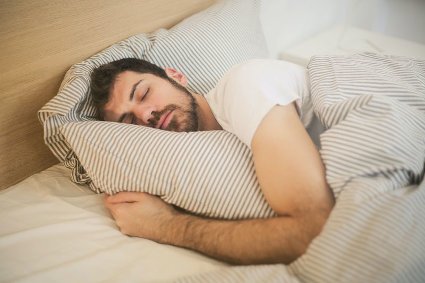
- Type 2 diabetes
- Cardiovascular disease
- Obesity
- Depression
Best Practices for Better Sleep
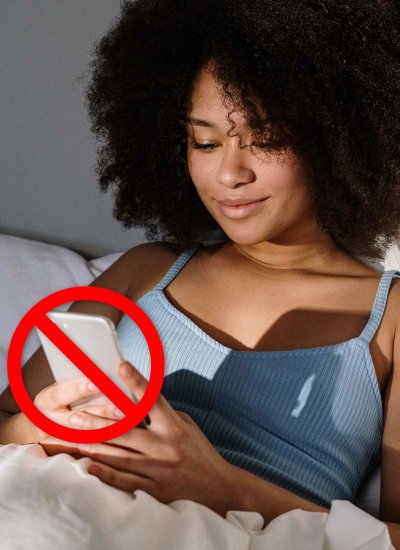
- Going to bed and waking up at the same time every day, including the weekends.
- Maintaining a dark and quiet bedroom.
- Keeping electronics, such as smartphones, computers, and televisions out of your bedroom.
- Avoiding big meals, caffeine, and alcohol before you go to bed.
- Staying physically active throughout the day.
Entertainment Isn’t the Same as Relaxation
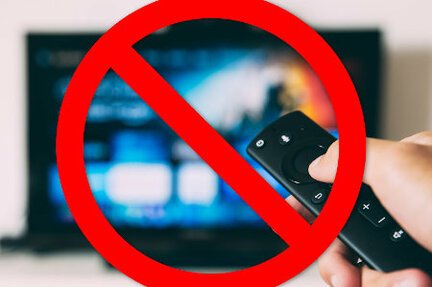
- Practice both gentle breathing and progressive muscle relaxation daily (for 20-25 minutes). Rate your stress level on a 0 (completely relaxed) to 10 (completely stressed) scale both before and after each exercise.
- Evaluate which exercise works best for you after practicing them for 14 days.
How People Have Incorporated SleepPhones® Into Their Nighttime Routine
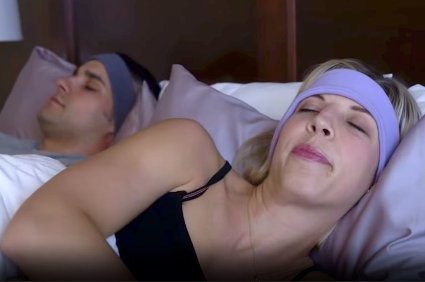
Music
Many people use music to relax both before bed and during the night. According to a study published in the Advanced Journal of Nursing, listening to music improves sleep quality in older adults. More specifically, researchers found that music resulted in significantly better components of sleep quality including:
- better perceived sleep quality
- longer sleep duration
- greater sleep efficiency
- shorter sleep latency
- less sleep disturbance
- less daytime dysfunction
Michael: "SleepPhones are perfect if you need music to fall asleep. Amazing how you have no idea they are on, and don't feel that annoying speaker bump on your ear when you are wearing them while the side of your head is resting on the pillow."
Meditation
There are a variety of physiological changes that occur in the body when you meditate. Studies have found that people who meditate can lower cortisol levels (stress hormone) and catecholamines (neurotransmitters that help our bodies respond to stress).
Catherine: "My SleepPhones are an awesome way for me to listen to music, lectures, or meditations without the inconvenience of traditional headphones. They are so comfortable and allow me to easily drift into sleep."
ASMR
ASMR is short for autonomous sensory meridian response. For some people, listening to sounds such as whispering, blowing, or tapping triggers a tingling sensation that helps them relax. Many also use ASMR to sleep. In fact, a recent study revealed that 60 percent of people reported feeling sleepy after experiencing ASMR.
Hanna: "I can sleep again! These are amazing and help me sleep. I can't sleep unless I'm listening to ASMR tracks, audiobooks, or podcasts, and these are so comfortable."
Audiobooks
If you love to read but prefer your books be read to you, try listening to audiobooks using SleepPhones. Here's what Lisa Artis, from the Sleep Council has to say: "A consistent bedtime routine, and making sufficient time to relax, is key to achieving a good night’s sleep. Listening to an audiobook is one way to wind down before bed as it helps you to switch off."
But Lisa's not the only one who has good things to say about audio books—check out what SleepPhones users have to say:
Kathy: "Audible with SleepPhones by AcousticSheep has been a lifesaver for my insomnia brain."
Tobias: "I listen to an audiobook with SleepPhones to shut out the surge of creative thoughts and set it to turn off in a half-hour. Does the trick. Radical life hack for me. Turned years of insomnia around."
Binaural Beats
Listening to binaural beats is best described as hearing two different tones in each ear at slightly different frequencies. Similar to meditation, some people find that binaural beats lower their stress levels. In a study published in Frontiers of Human Neuroscience, research found that "auditory stimulus could induce the brain signals required for sleep, while simultaneously keeping the user in a psychologically comfortable state."
Julie: "Thank you so much; being able to listen to the binaural beats at night and in the morning has changed my life! I no longer have to take any sleep medication, which I have taken for more than ten years! I will be telling all my friends and family about the new SleepPhones!"
Diane: "By the way, SleepPhones + binaural beats + sleep mask = two hours of a really good nap."
Hypnosis
Hypnosis' goal is to focus one's attention on specific goals or thought patterns. According to Sleep.org, hypnosis may also increase the amount of time that you spend in slow-wave sleep (deep sleep) by as much as 80 percent.
Some customers have specifically found that using SleepPhones to listen to hypnosis tracks was a way to reduce anxiety during the COVID-19 pandemic.
One customer listens to self-hypnosis books to fall asleep but dislikes how regular headphones were uncomfortable and ultimately slid off during the night. H.L.: "Oh my! This is pretty much the best product I have found in a long while. My husband snores, and I am an extreme light sleeper...I get a very good night's sleep. The system is lightweight and works like a charm."
White Noise
Some people find that soothing background noise, such as ocean waves or falling rain, diverts their attention away from irritating sounds and lulls them to sleep. The Sleep Foundation also found that a white noise machine can "promote healthy, high-quality sleep."
Anonymous Customer: "For nights when [my tinnitus is] too unbearable, I use SleepPhones with a Rain app on my phone. They're headphones that are woven into a headband that you can wear while sleeping. They're very comfortable."
Debra: "SleepPhones for playing soothing music or white noise. They're so much more comfortable than earphones. I wear them when trying to sleep on planes and hotels."
Sarah: "They're legit one of the best things that have ever happened to me! Not kidding! I'm a super light sleeper, and my husband snores. I'd be an absolute zombie without them."
Additional Relaxation Resources
The sound quality and comfort of using SleepPhones to listen to music, meditation, ASMR, audiobooks, binaural beats, hypnosis, or white noise makes relaxing at night much easier. If you’re interested in learning more about sleeping well, check out the following resources:
Quit a Bad Habit With Binaural Beats: Some of us turn to medication, alcohol, and other substances to manage stress, help us relax, and lull us to sleep. But a simple nightcap can quickly turn into a habit. However, specialized sound recordings may offer a way to induce relaxation in the body and mind, especially those containing brainwave entrainment technology, without the use of substances. Learn more about kicking a bad habit with the help of binaural beats.
Can You Use ASMR for Sleep?: As daily streaming numbers soar into the millions for ASMR tracks on Spotify, and sonically-bizarre yet strangely-relaxing videos go viral on YouTube, those with sleep troubles are starting to wonder: What exactly is Autonomous Sensory Meridian Response (ASMR)?; Why am I seeing it trending?; How can it help me sleep better? Take a closer look at why many people assert that ASMR is a helpful sleep aid.
AcousticSheep Harmony Project™: AcousticSheep is on a mission to discover what sounds are truly optimal for inducing relaxation and deep sleep. Your participation plays an indispensable role in advancing the science of sleep for millions of people worldwide! Get involved with the Harmony Project!
Get Up to Work Or Try to Relax in Bed?: Many people need prescription sleep medications because they stress themselves out before bed. After a week or two of fighting insomnia, staying in bed, and attempting unsuccessfully to relax, they become so discouraged that it becomes a psychological game. The harder they try to go to sleep, the harder it is to fall asleep. Learn what might work better than forcing yourself to sleep.
5 Winding Down Tips for Better Sleep: The importance of practicing a relaxing and regular bedtime routine is often overlooked. This routine does not have to be complicated or long. The idea of "winding down" at night should be a slow and enjoyable process. Here are five tips to help you develop a consistent bedtime routine that will help you sleep better.
What to Know About Sophrology: One of the newest wellness trends is sophrology. Put simply: it’s a relaxation technique that incorporates both physical and mental exercises. Find out more by reading this post.
Shop SleepPhones®
From music to meditation, from ASMR to audiobooks, from binaural beats to hypnosis or white noise, these relaxation methods to achieve better sleep aren't nearly as effective without comfortable, wearable technology specifically made with sleep in mind.
SleepPhones® were designed by a family doctor to be the ideal headphones for sleep, meditation, and yoga. Click the button below to browse our store for the SleepPhones and guided meditation tracks that fit your sleep needs.
Find more about relaxation with SleepPhones® headphones here.
